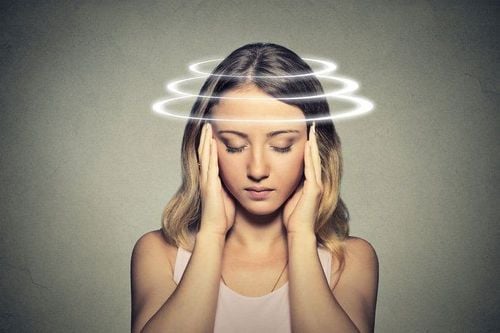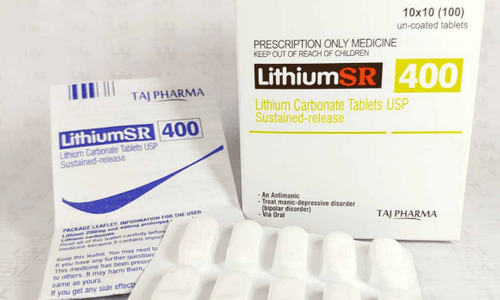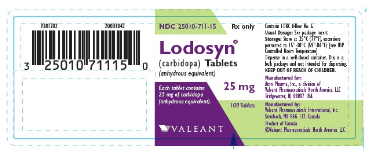This is an automatically translated article.
The article was professionally consulted by MSc Huynh An Thien - Department of Medical Examination and Internal Medicine, Vinmec Danang International General Hospital.Most people have experienced vertigo at least once in their life. The sudden feeling of dizziness makes us dizzy, lightheaded, scared and want to fall, sometimes accompanied by nausea, vomiting, headache, fatigue. Most acute attacks of vertigo have a peripheral cause. How acute vertigo is treated depends on the underlying pathology.
1. Treatment of acute vertigo based on related pathology
1.1 Benign paroxysmal positional vertigo This is the most common pathology in the group of peripheral vertigo. The cause is thought to be due to the presence of small stones in the semicircular canals of the cochlea, an organ that helps the body orientate posture. When the body changes in a certain position, the stone particles moving in the semicircular canal will stimulate the vestibular system, triggering the sensation of dizziness.At this time, the patient should try to lie still, keeping the head in the position that feels safest. From there, dizziness will quickly subside because the stimulation from the movement of the stone particles is no longer there. Therefore, the most effective treatment for benign paroxysmal positional vertigo is the repositioning of stones in the semicircular canal, such as the Epley maneuver and the Semont maneuver.
Epley test Rotate patient's head 90° to the uninjured side for 30 s; The head is then rotated for another 90°, while the patient rotates the body to the same side for 30 s; The patient then sits up. Semont's test Easier to perform than Epley's test; Position the patient upright in a chair or bed, with the head turned at a 45° angle to the opposite side of the affected side; Quickly lay the patient down on the bed, holding the position for 30 seconds; After that, the patient remained in the lying position but turned to the opposite side and did not change the head position. Hold this for 30 seconds. Vestibular Rehabilitation These two tests can be performed at the patient's home while the rehabilitation program needs the guidance of a physiotherapist. This approach is more useful for vertigo episodes originating from the labyrinth rather than from the semicircular canal.
After performing the above exercise tests, the acute dizziness subsides, the patient can return to normal activities.
1.2 Vestibular Neuritis Since the vestibule is the organ responsible for the balance control of the body, any damage here makes this function no longer guaranteed. Patients with vestibular neuritis will feel dizzy and lightheaded. However, for lesions of the vestibular neuritis nature, fortunately most of these cases resolve spontaneously.
Despite this, glucocorticoids, with potent anti-inflammatory activity, may be beneficial if administered for 3 days from symptom onset. In addition, if the patient has Herpes Zoster infection, additional antiviral drugs should be added.
In addition, vestibular inhibitors can reduce acute symptoms, but should not be given for too many days and should be discontinued when symptoms have improved. If symptoms persist, consider continuing the patient with vestibular rehabilitation therapy.
1.3 Meniere's disease The main treatment for Meniere's vertigo is diuretics and salt restriction.
At the same time, the doctor may prescribe gentamicin by injection into the middle ear. Surgical intervention by the process of total dissection (vestibular neurectomy, labyrinthectomy) is rarely performed.

2. Medicines to treat symptoms
The following medicines help relieve the feeling of dizziness. There is not enough evidence to support the effectiveness of these drugs in the treatment of the above diseases. Accordingly, only short-term medication should be used to treat these symptoms, until dizziness subsides, and long-term use should be avoided to limit side effects. If symptoms recur, re-introduction for several days and early dose reduction may be considered.2.1. Group of drugs Benzodiazepines Diazepam: 2.5 mg, 1-3 times/day; Clonazepam: 0.25 mg, 1-3 times/day. 2.2. Antihistamines group Meclizine: 25-50 mg, 3 times/day; Dimehydrinate: 50 mg, 1-2 times/day; Promethazine: 25-50 mg rectally or intramuscularly. 2.3. Phenothazines Prochlorperazine group: 5 mg intramuscularly or 25 mg rectally.
2.4. Anticholinergic drug group Scopolamine transdermal: Presented as a skin patch, popular for the prevention of motion sickness.
2.5. Sympathomimetics Ephedrine: 25 mg/day, or a combination of two drugs, ephedrine and promethazine: 25 mg/day for each drug.
2.6. Glucocorticoids Prednisone: 100 mg/day for 3 days. Thereafter, the dose should be gradually reduced, by 20 mg every 3 consecutive days.
2.7. Domperidone antiemetic group: 10-20 mg, 3-4 times/day; Metoclopramide: 10-15 mg, 3-4 times/day. 2.8. Painkiller group Paracetamol: 500 mg, 3-4 times/day

3. Inner ear surgical intervention
Surgical interventions can sometimes also be applied to treat acute vertigo if the patient does not respond to medical treatment and the symptoms are too severe, reducing the quality of life. Through microsurgery, the doctor will cut off the transmission of vestibular signals to the brain through the VIII nerve. This procedure can reduce vertigo by more than 90% and is indicated only in cases of extravasation or refractory Meniere's disease.4. Monitoring and care
Unlike central nervous system vertigo, acute episodes of vertigo are usually peripheral etiologies and resolve rapidly and respond well to symptomatic medications.In addition, it is necessary to give the patient complete bed rest, limit sound, light and communication with people around. During these days, it is necessary to ensure a full, easy-to-digest diet, drink more water, especially when vomiting a lot.
In the case of dizziness that does not improve but continues to get worse, or dizziness is accompanied by other symptoms such as weakness of the face, limbs, distorted mouth, difficulty speaking, swallowing, walking and standing stagger... then think about the possibility of dizziness due to CNS etiology. At this time, it is necessary to bring the patient to the hospital as soon as possible for timely intervention.
Master Doctor Huynh An Thien has strengths and experiences in examination, consultation and treatment of neurological diseases; respiratory and endocrine-metabolic diseases
Before being a neurologist at the Department of Medical Examination and Internal Medicine - Vinmec International Hospital Da Nang, Dr. Thien used to have long working experience at the hospital Hue Central.
Please dial HOTLINE for more information or register for an appointment HERE. Download MyVinmec app to make appointments faster and to manage your bookings easily.














